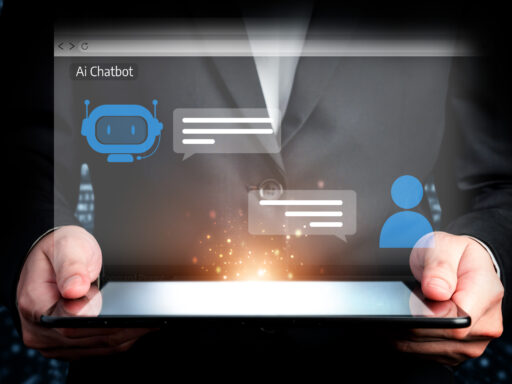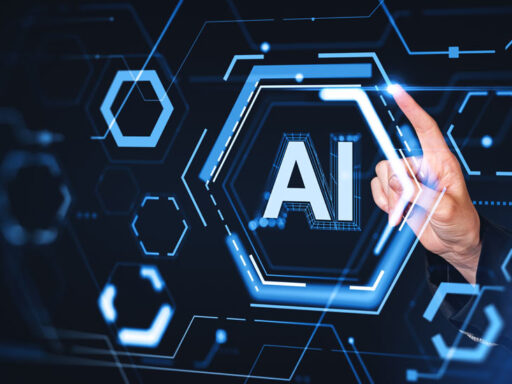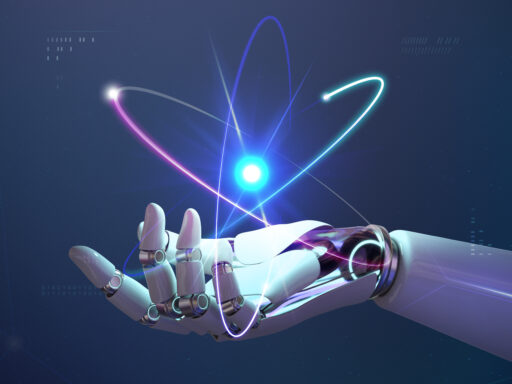In today’s fast-paced marketing landscape, efficiency is paramount. Marketing teams are constantly under pressure to deliver personalized, impactful campaigns while managing numerous channels and data sources. The emergence of AI-powered marketing automation is revolutionizing how businesses approach their marketing strategies, offering unprecedented opportunities to streamline workflows and boost efficiency.
This post will explore how AI is transforming marketing automation by addressing traditional challenges, enhancing productivity, and driving superior results.
Challenges of Traditional Marketers
Traditional marketing automation tools, while useful, come with several limitations that can hinder marketing teams’ performance:
- Repetitive Tasks: Many traditional tools require manual input for repetitive tasks such as email scheduling, social media posting, and data entry. This not only consumes valuable time but also increases the likelihood of human error.
- Limited Data Analysis: Traditional tools often lack advanced analytics capabilities, making it difficult to extract actionable insights from large datasets. This limitation can result in missed opportunities and less informed decision-making.
- Difficulty in Personalization: Personalizing marketing efforts at scale is a significant challenge with traditional tools. Generic, one-size-fits-all campaigns fail to engage customers on a personal level, leading to lower conversion rates and customer loyalty.
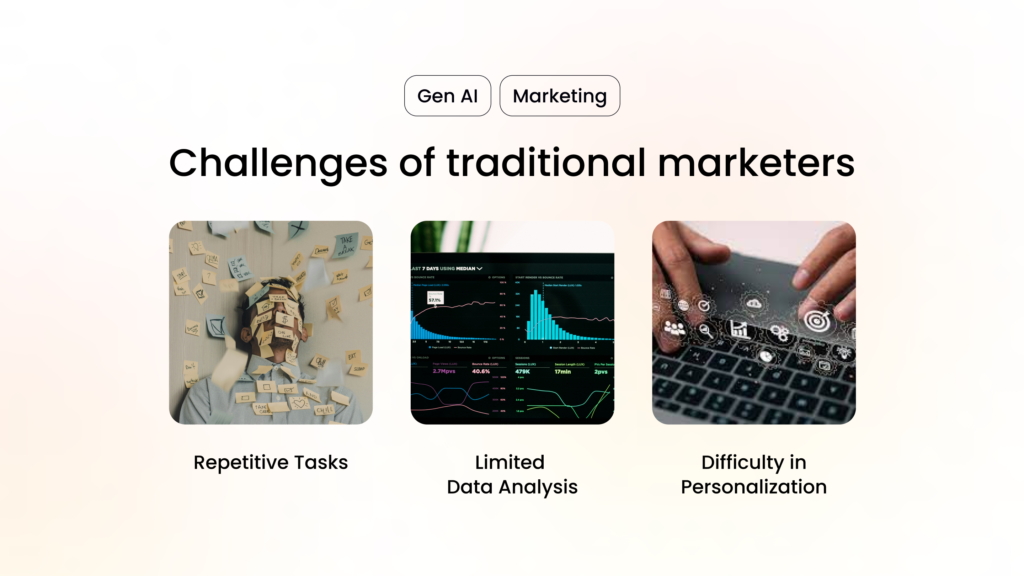
These limitations can significantly hinder a marketing team’s ability to achieve optimal results, making it crucial to explore more advanced solutions.
How AI in Marketing Automation is Transforming Marketing
AI is reshaping the landscape of marketing automation by introducing advanced functionalities that address the challenges outlined above. Here’s how:
Advanced Data Analytics & Customer Insights
AI-driven platforms can process vast amounts of data quickly and accurately, providing deep insights into customer behavior and preferences. Machine learning algorithms analyze patterns and trends, enabling marketers to make data-driven decisions and optimize their strategies.
Content Creation & Personalization
AI tools can generate personalized content that resonates with individual customers. Natural language processing (NLP) and machine learning can craft tailored messages, product recommendations, and dynamic content that adjust based on user interactions and preferences.
Predictive Campaign Optimization
Predictive analytics powered by AI allows marketers to forecast campaign outcomes and adjust strategies proactively. By analyzing historical data and current trends, AI can predict customer responses and campaign performance, optimizing marketing efforts for better ROI.
Real-Time Customer Engagement
AI enables real-time customer engagement through chatbots and virtual assistants. These tools can handle customer inquiries, provide instant support, and guide users through their buying journey, enhancing the overall customer experience.
Benefits of AI in Marketing Automation
The integration of AI in marketing automation offers several compelling benefits:
Increased Efficiency and Productivity
By automating repetitive tasks and providing actionable insights, AI frees up marketers’ time, allowing them to focus on creative and strategic initiatives. This increased efficiency leads to higher productivity and more impactful marketing efforts.
Deeper Customer Understanding and Personalized Experiences
AI’s ability to analyze vast amounts of data provides a deeper understanding of customer behavior and preferences. This enables marketers to create highly personalized experiences that resonate with individual customers, driving engagement and loyalty.
Improved Campaign Performance and ROI
With predictive analytics and real-time optimization, AI-powered platforms enhance campaign performance. Marketers can make informed decisions, adjust strategies on the fly, and achieve better ROI from their marketing efforts.
More Time for Strategic Marketing Initiatives
By automating routine tasks and providing valuable insights, AI allows marketing teams to dedicate more time to strategic planning and creative endeavors. This shift from operational to strategic focus can lead to more innovative and effective marketing campaigns.
Case Studies & Examples of AI in Marketing Automation
Netflix: Personalized Content Recommendations
Netflix leverages AI to provide personalized content recommendations to its users. By analyzing viewing history, preferences, and behavior, Netflix’s AI algorithms curate a tailored selection of movies and shows for each user. This personalized approach has been a key factor in Netflix’s success, driving user engagement and satisfaction.
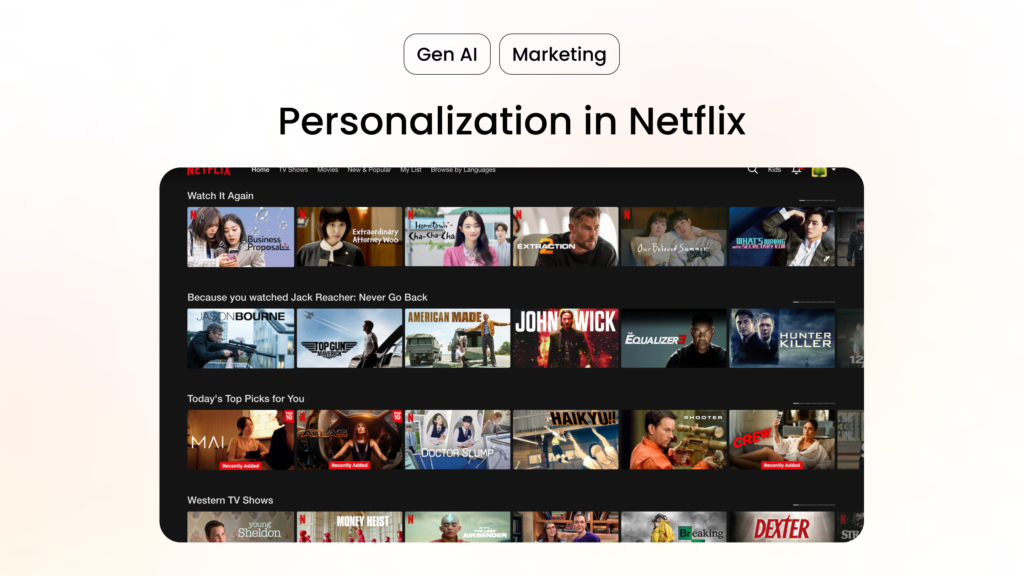
Sephora: Virtual Beauty Advisor
Sephora uses AI-powered chatbots to enhance customer engagement and support. Their virtual beauty advisor, Sephora Virtual Artist, uses AI to provide personalized product recommendations, virtual try-ons, and beauty tips. This innovative use of AI has improved customer experience and increased sales.
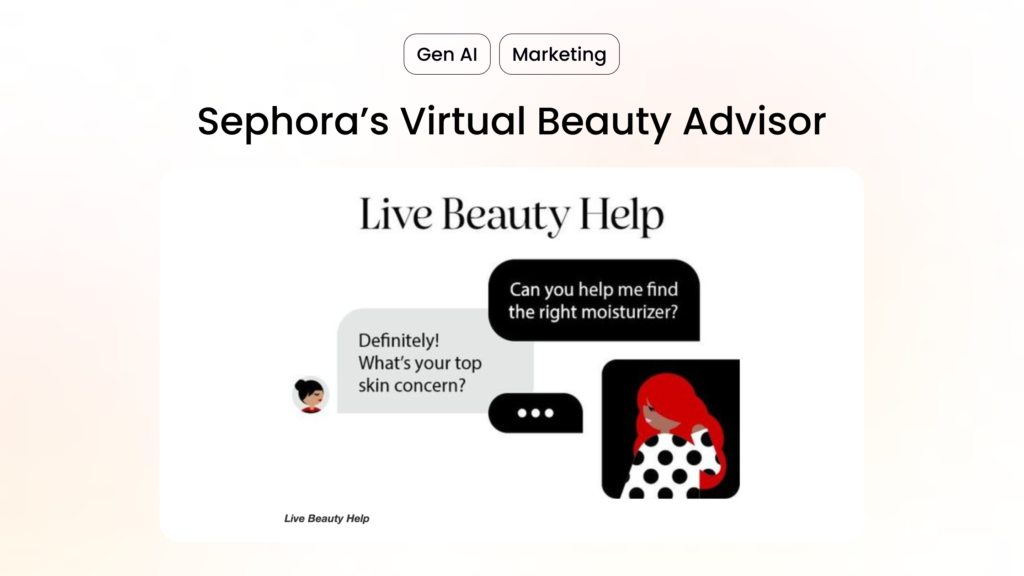
Amazon: Product Recommendations
Amazon utilizes AI to deliver personalized product recommendations to its customers. By analyzing purchase history, browsing behavior, and preferences, Amazon’s recommendation engine suggests products that are highly relevant to each user. This personalized approach has significantly boosted sales and customer loyalty.
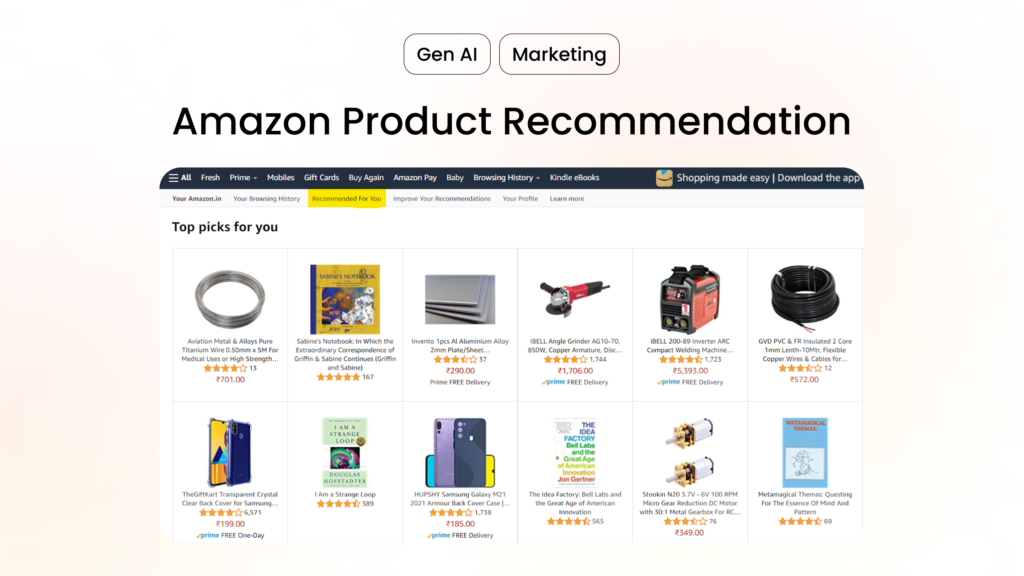
Getting Started with AI in Marketing Automation
Integrating AI into your marketing automation strategy requires careful consideration. Here are some factors to keep in mind:
Choosing the Right Platform to Automate Marketing with AI
When selecting an AI-powered marketing automation platform, consider features such as data analytics capabilities, ease of use, integration options, and scalability. Platforms like HubSpot, Marketo, and Salesforce offer robust AI functionalities that can cater to various business needs.
Training and Adoption
Ensure your team is well-trained in using AI tools effectively. Investing in training sessions and resources can help your team maximize the benefits of AI-powered automation.
Data Privacy and Ethics
As you leverage AI, it’s essential to prioritize data privacy and ethical considerations. Ensure compliance with data protection regulations and implement transparent practices to build trust with your customers.
Integrating AI in Marketing Automation
AI is revolutionizing marketing automation by streamlining workflows, boosting efficiency, and enabling personalized customer experiences. As businesses continue to adopt AI-powered tools, the benefits will only grow, making AI an indispensable component of modern marketing strategies.
The transformative power of AI lies in its ability to automate routine tasks, provide valuable insights, and enhance overall marketing performance. For marketers, business owners, CMOs, and leaders, embracing AI in marketing automation is not just an option—it’s a necessity for future success.
Ready to explore the potential of AI in your marketing efforts? Start today by integrating AI-powered solutions into your strategy and unlock new levels of efficiency and effectiveness with Innovators Hub Asia.




